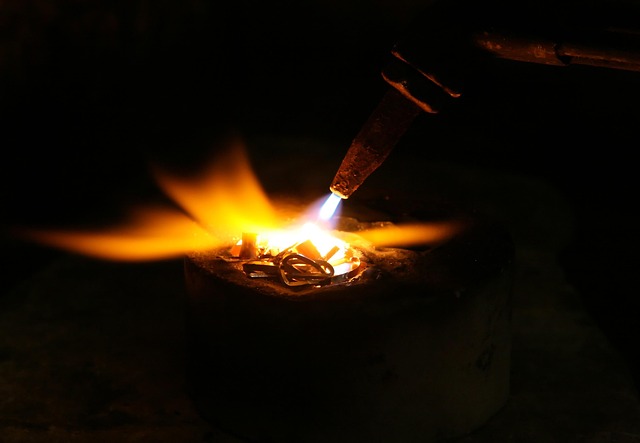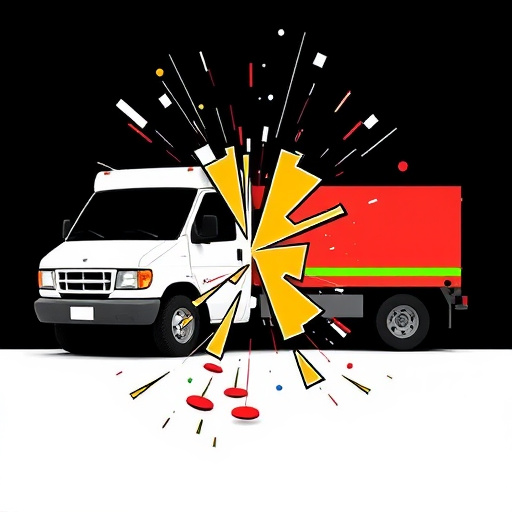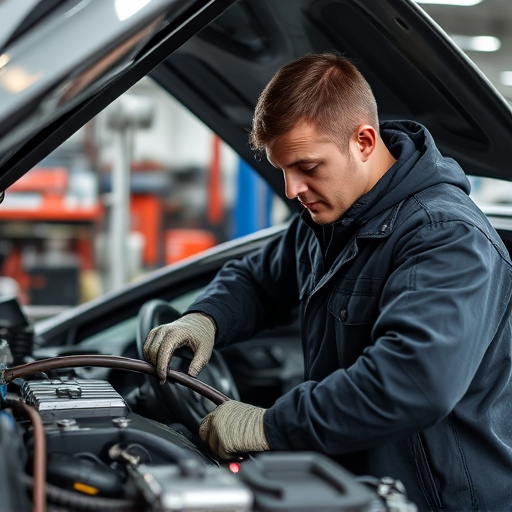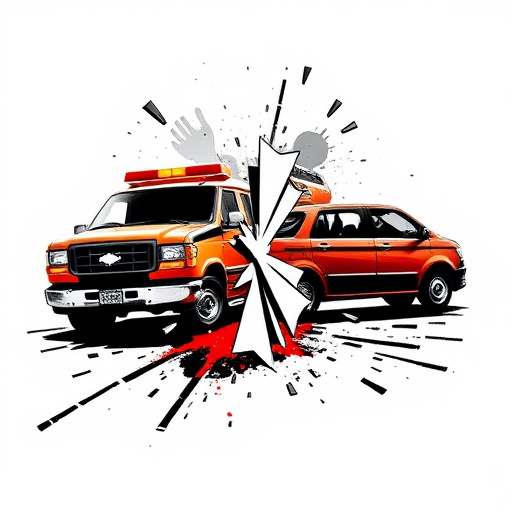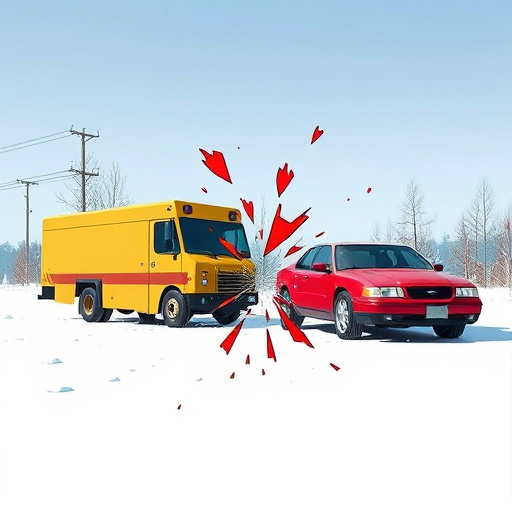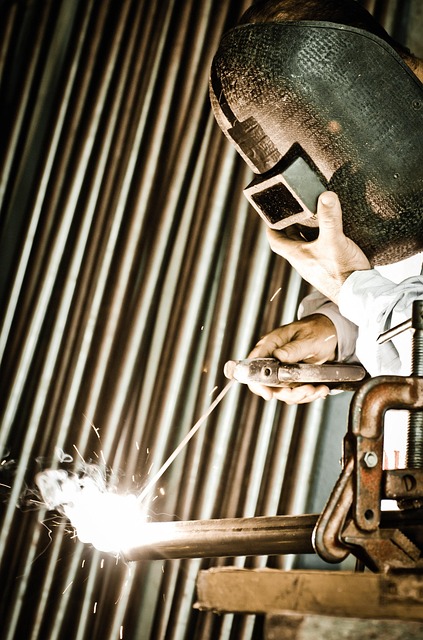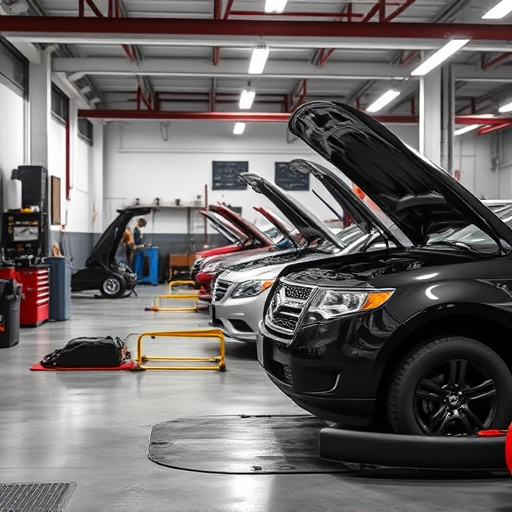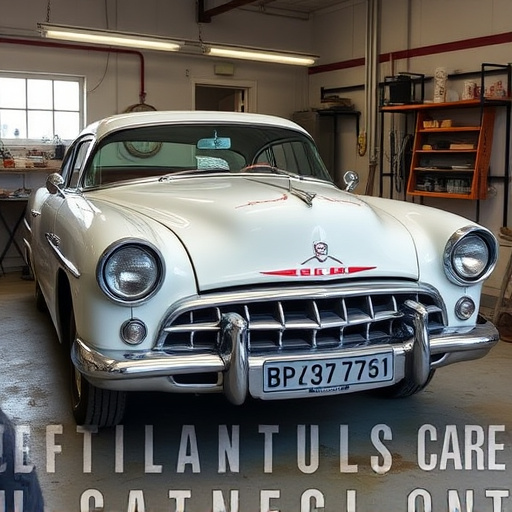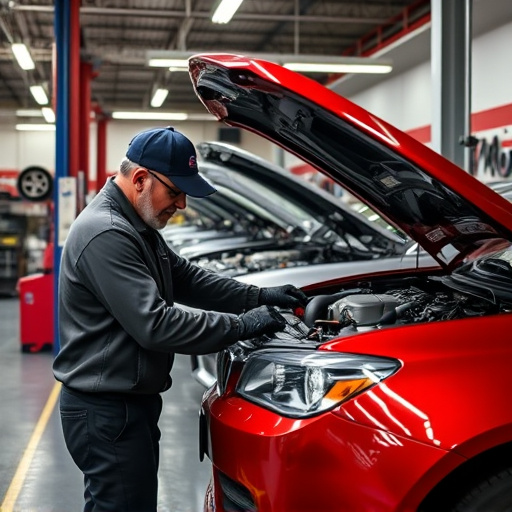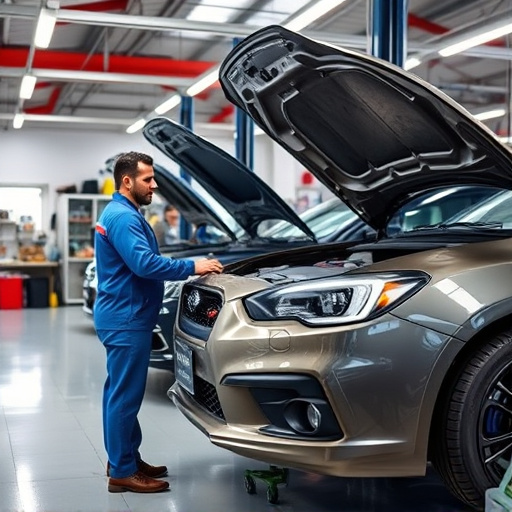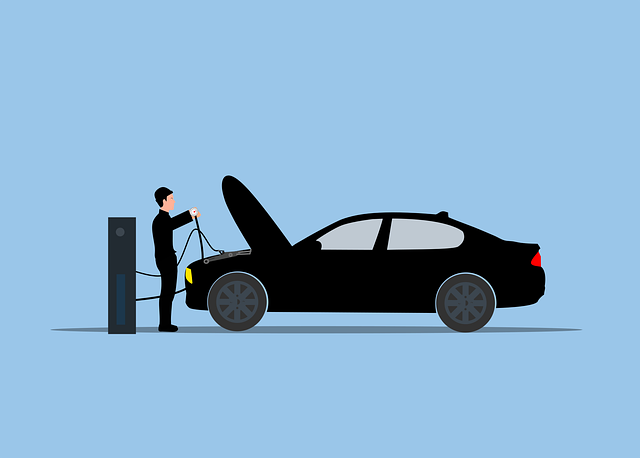Collision repair technicians play a vital role in restoring vehicles to pre-accident condition, requiring recognized certifications like ASE to master diverse issues from minor to complex repairs. They combine technical expertise and practical skills, understanding modern vehicle systems and materials, while communicating effectively with customers and collaborating with peers. Adaptability is key, and securing I-Car or ASE certifications boosts career prospects, enhances reputation, and demonstrates specialized expertise in the automotive sector.
Collision repair technicians play a crucial role in ensuring vehicle safety and quality restoration. In an industry where precision and expertise are paramount, certifications matter. This article delves into the essential skills and knowledge required by collision repair technicians, as well as top certifications that enhance career prospects and build reputation. By understanding industry standards and recognized credentials, aspiring professionals can navigate the competitive landscape effectively.
- Understanding Industry Standards and Recognized Certifications
- Essential Skills and Knowledge for Collision Repair Technicians
- Top Certifications Enhancing Career Opportunities and Reputation
Understanding Industry Standards and Recognized Certifications
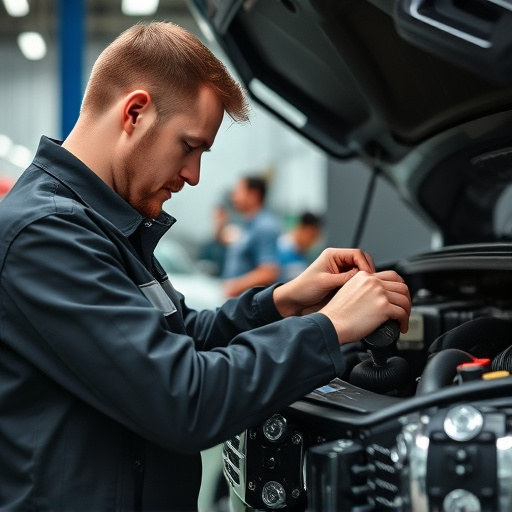
Collision repair technicians play a critical role in restoring vehicles to their pre-accident condition. To excel in this field, it’s essential for them to understand and adhere to industry standards. One of the best ways to achieve this is through recognized certifications. These certifications not only validate their skills but also ensure they follow the latest techniques and safety protocols. For instance, the National Institute for Automotive Service Excellence (ASE) offers specialized certifications in collision repair, including frame straightening and vehicle repair. This ensures that collision repair technicians are equipped to handle even complex scenarios like ‘fender benders’ effectively and efficiently.
Essential Skills and Knowledge for Collision Repair Technicians
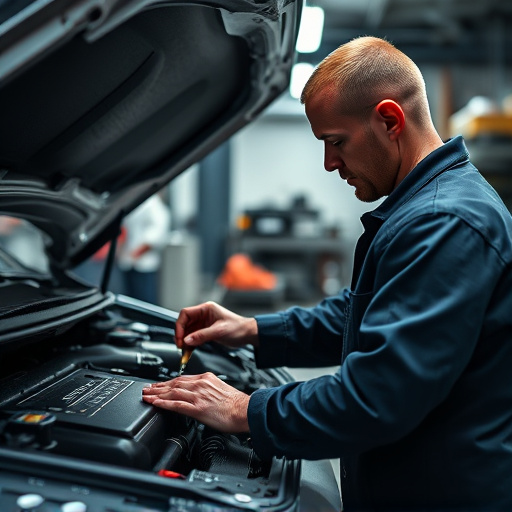
Collision repair technicians require a unique blend of technical expertise and practical skills to excel in their field. At the heart of their role lies an understanding of automotive structures, including complex systems and materials used in modern vehicles. Technicians must be adept at diagnosing issues, as each damage pattern tells a story that needs interpretation. This involves recognizing subtle differences in frame straightening techniques, understanding how to safely disassemble and reassemble various vehicle components, and possessing the knowledge to perform precise measurements for accurate repairs.
Beyond technical proficiency, effective communication skills are vital. Collision repair technicians often interact with customers, explaining complex procedures and providing updates on progress. They also collaborate closely with other auto repair services professionals, such as estimators and painters, ensuring seamless integration within a body shop environment. This role demands adaptability, as every vehicle presents unique challenges, requiring technicians to remain flexible in their approach while consistently delivering high-quality body shop services.
Top Certifications Enhancing Career Opportunities and Reputation
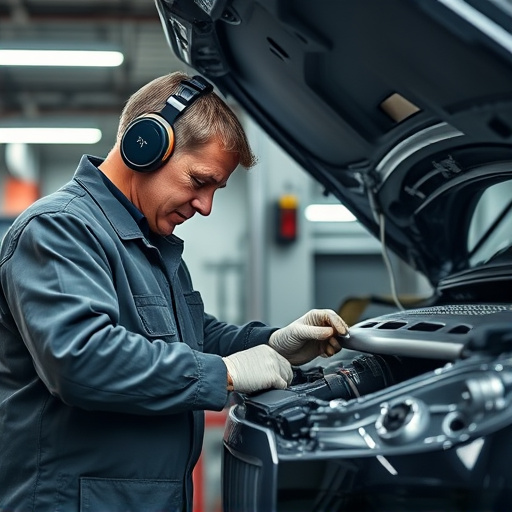
For collision repair technicians, securing the right certifications can significantly enhance career prospects and open doors to a variety of opportunities. In an industry that demands precision and expertise, recognized certifications validate a technician’s skills and knowledge, instilling confidence in potential employers and clients alike. These credentials not only demonstrate a deep understanding of complex repair processes but also indicate a commitment to staying current with the latest technologies and standards.
Among the top certifications enhancing the reputation and career trajectory of collision repair technicians are those specific to their craft. For instance, I-Car (Institute for Automotive Service Excellence) certification is widely respected in the automotive sector. This certification proves proficiency in various areas such as unibody repair, frame straightening, and advanced painting techniques—essential skills not just for general collision repairs but also for specialized tasks like mercedes benz repair or dent repair. Other notable certifications include ASE (National Institute for Automotive Service Excellence) credentials, which further solidify a technician’s expertise, especially when focusing on complex systems and specialized components, thereby bolstering their reputation as industry professionals.
Collision repair technicians who invest in their professional development through recognized certifications can significantly enhance their career prospects. By understanding industry standards, acquiring essential skills, and obtaining top certifications, these professionals not only boost their reputation but also position themselves as valuable assets to any automotive repair shop. Staying up-to-date with the latest technologies and techniques ensures collision repair technicians remain in high demand, offering them a competitive edge in the job market.
